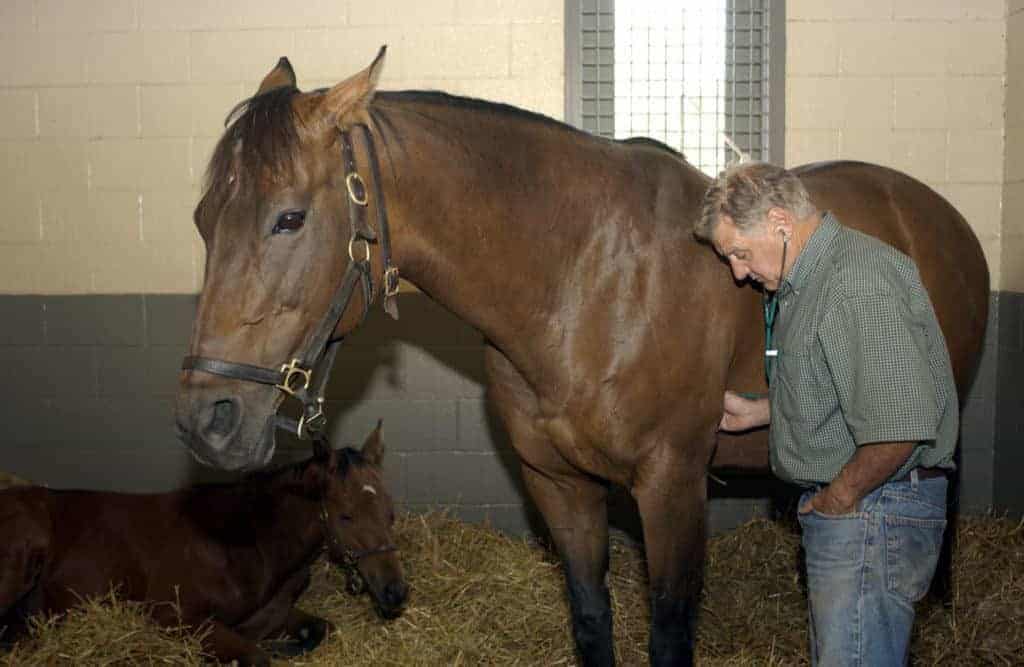
Cushing’s Disease and Equine Metabolic Syndrome
Three veterinarians discuss the challenges of properly diagnosing and treating/managing horses afflicted with equine Cushing’s disease, equine metabolic syndrome, and associated laminitis.
News and issues for equine health professionals

Three veterinarians discuss the challenges of properly diagnosing and treating/managing horses afflicted with equine Cushing’s disease, equine metabolic syndrome, and associated laminitis.
“Cushing’s Disease and Equine Metabolic Syndrome” was presented by three authorities on the topics.

Certain lucencies should be taken seriously as they appear to have a significant effect on racing performance.
Plans to rebuild the laboratory are in final design stages and construction should begin next summer.
Topics discussed clinical signs, treatment options, diagnostic tests, and vaccination against Lyme disease.
Equine Guelph is pleased to announce the first offering of the Equine Welfare online course.

While some equine heart problems can be life- or career-threatening others typically don’t impact performance.
The Lameness Lab will allow horse owners to discover the causes and factors contributing to increased risk.
A combination of guiafenesin and propofol reduced adverse reactions that occur when propofol is used alone.

Hospitalized horses are at an increased risk for developing laminitis as a complication of injury or illness.
A mobile MRI suite will be available at Helen Woodward Equine Hospital in Rancho Santa Fe, Calif., as needed.
Understanding how the horse sees the world is key to developing a practical handling approach.
The MSU College of Veterinary Medicine congratulates Laura Hoholik, a Markel Scholarship recipient.
Bernard is examining interactions between the body, the West Nile virus, and even the mosquito saliva.

The ideal way to manage an obese horse or pony is to prevent it from becoming obese in the first place.
Disease control in developing countries must be cost-effective, practical, and acceptable to livestock owners.
Stay on top of the most recent Horse Health news with
"*" indicates required fields